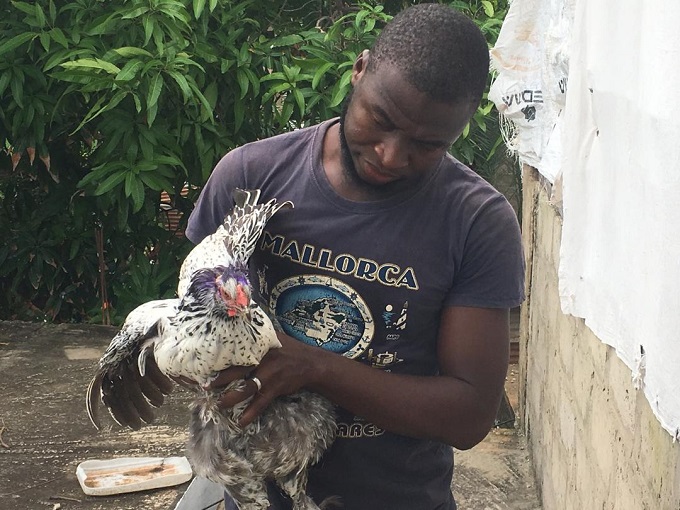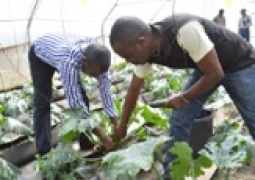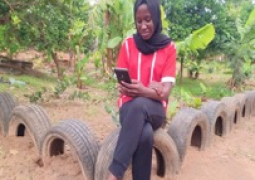
Gambian youth Baboucarr Jaiteh, who after facing imprisonment and enslavement on his journey to find a better future, made it back to The Gambia to start a successful poultry business.
The eighth of January 2016 – that’s the day Baboucarr Jaiteh left his home in The Gambia in search of ‘greener pastures through the backway’.
The ‘backway’ is what Gambians call the overland route that many of their compatriots have taken through neighbouring African countries to get to Europe.
The Gambia has sent a higher share of its population to Europe than all but one other country, according to the World Bank.
Jaiteh’s journey did not go as planned. Not long after leaving Old Jeswang, his village next to the Gambian capital of Banjul, he found himself in jail.
Jaiteh spent much of the next two years between Agadez – the city in central Niger dubbed the gateway to the Sahara Desert – and Tripoli in Libya.
During this time, he was imprisoned twice and enslaved by two different warring factions in Libya’s ongoing civil conflict. His family and friends in The Gambia, despite facing financial difficulties, were able to sell family property and raise money to pay for his release.
Jaiteh eventually returned to The Gambia in August 2017.
He started a small poultry business with 75 chicks, with the goal of selling chicken and eggs to people in Old Jeswang.
Five months later, in a bid to raise funds to expand his business, the 31-year-old applied for a mini grant through the International Trade Centre’s Youth Empowerment Project (YEP).
In his application, he requested funds to buy 300 chickens along with feeding equipment and chicken feed.
Once his application was approved in March 2018, Jaiteh submitted invoices for the purchases, which came to about $850.
The National Association of Cooperative Credit Unions, the local financial institution partnering with ITC on the initiative, procured the items directly from the vendors and supplied them to Jaiteh.
His business, Soniba Poultry, is now formally registered. It has 1,500 chicks and fully-grown chickens, and employs nine employees, two of them full-time.
In his grant application, Jaiteh had estimated that receiving the grant would enable him to earn a profit of approximately $750 in the following six months.
In the first half of 2018 alone, he made more than $1,300 in profits, putting him on track to earn nearly three-and-a-half times more than his initial projection.
‘I have put the chicks and materials provided to me to excellent use, growing the chicks to maturity and successfully selling them and profiting from the sales,’ he said.
Jaiteh has set his sights on scaling up and expanding his customer base.
‘I have every intention of growing this business to become one of the biggest poultry farm owners in The Gambia.’
He added: ‘The backway has taught me a lot of hard and unforgettable lessons in my life which I will never forget, but right now my life is here in The Gambia.
I know that I can be bigger and better developing my poultry here than if I were in Germany or some other country.
I am contributing to The Gambia, my homeland.’
After more than two decades of dictatorship, this West African country elected a new democratic government a year and a half ago.
The peaceful transition under President Adama Barrow has opened the way for political and economic reforms as well as the rebuilding of bridges to the rest of the world.
A key priority for the new government has been to create jobs and opportunities, particularly for young people.
The goal is to give people who fled the country a reason to return home, while providing others with incentives not to pursue irregular migration.
Source-Gambia Youth News





